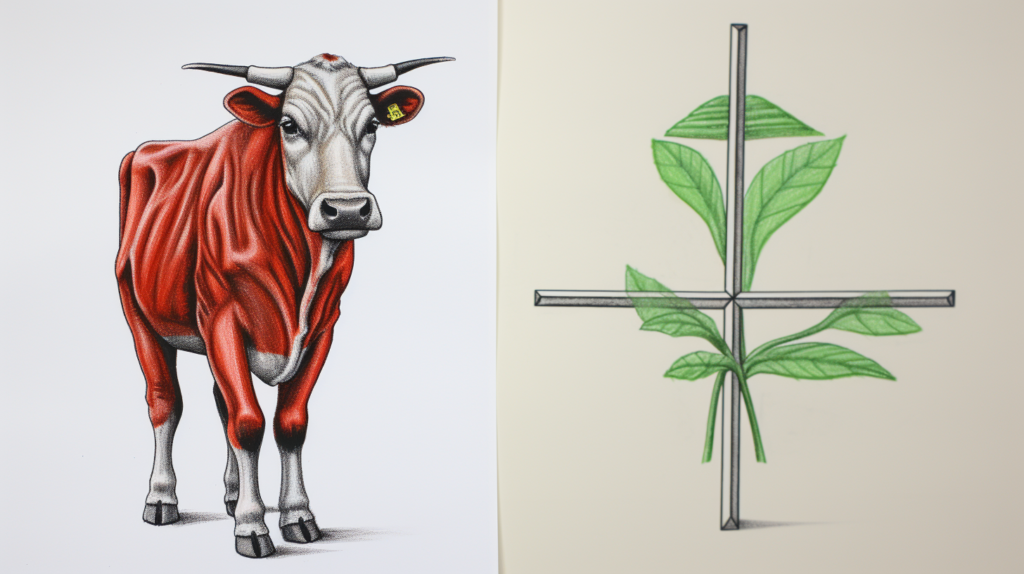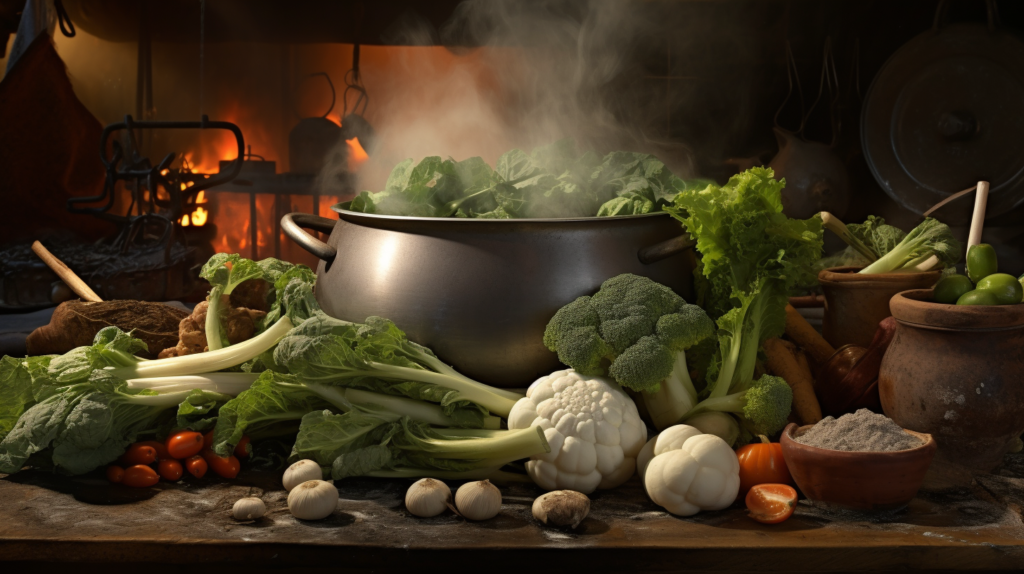In a world where health consciousness often equates to a vegetable-rich diet, it’s crucial to explore a seldom-discussed aspect of these natural foods. At Organic Oasis, we advocate for a diet that aligns with human evolutionary needs, focusing on animal-based, unprocessed foods. This blog delves into why some vegetables may not be as benign as they seem, examining their natural defense mechanisms, the bioavailability of their nutrients, and how to make them more edible.

1. Nature's Arsenal: Natural Defense Chemicals in Vegetables
Vegetables have evolved complex defense systems to protect themselves from predators. Take, for example, the stinging nettle, which wards off herbivores and humans alike with its painful sting. Holly leaves, with their sharp edges, serve a similar purpose. These are blatant examples, but more subtle, yet potentially harmful, defense chemicals are present in many vegetables.
These natural pesticides, such as lectins and oxalates, can be problematic for human consumption. Lectins, found in high quantities in legumes and grains, can resist digestion and may lead to gut inflammation. Oxalates, prevalent in leafy greens like spinach, bind to minerals, hindering their absorption and potentially leading to kidney stones. While these compounds don’t cause immediate harm, like a nettle’s sting, their long-term effects on our digestive system and overall health cannot be overlooked.
2. The Myth of Nutrient Bioavailability in Vegetables
Often, the nutrient content of vegetables is widely celebrated. However, it’s crucial to understand that not all nutrients in vegetables are fully bioavailable. This means that our bodies may not effectively absorb all the vitamins and minerals these plants contain. Furthermore, many of the nutrients in vegetables are non-essential, which means they are not necessary for our survival or can be adequately sourced from animal-based foods, which align better with our natural dietary needs.
For instance, while vegetables are sources of vitamins and minerals, the bioavailability of these nutrients is often overshadowed by the presence of antinutrients like phytates, which bind minerals and reduce their absorption. This diminished bioavailability challenges the notion that a vegetable-heavy diet is the most effective way to meet our nutritional needs.


3. Making Vegetables Safer: The Role of Cooking
Despite these concerns, vegetables can still be a part of a balanced diet when prepared correctly. Boiling or steaming vegetables can significantly reduce the concentration of harmful defense chemicals. Cooking breaks down some antinutrients, making the beneficial components more accessible. For instance, boiling spinach can reduce its oxalate content, mitigating the risk of kidney stone formation. However, it’s essential to recognize that while cooking can make vegetables “safer,” it doesn’t necessarily make them as beneficial or necessary as animal-based food sources.
In conclusion, while vegetables are often lauded for their health benefits, it’s important to approach them with a degree of caution. Their natural defense chemicals can pose risks to our health, their nutrients are not always fully bioavailable, and they are often non-essential. By understanding these aspects and opting for proper cooking methods, we can mitigate some of the risks associated with vegetable consumption. However, at Organic Oasis, we emphasize that a diet focusing on natural, unprocessed, animal-based foods aligns more closely with our evolutionary dietary needs, offering optimal health benefits.